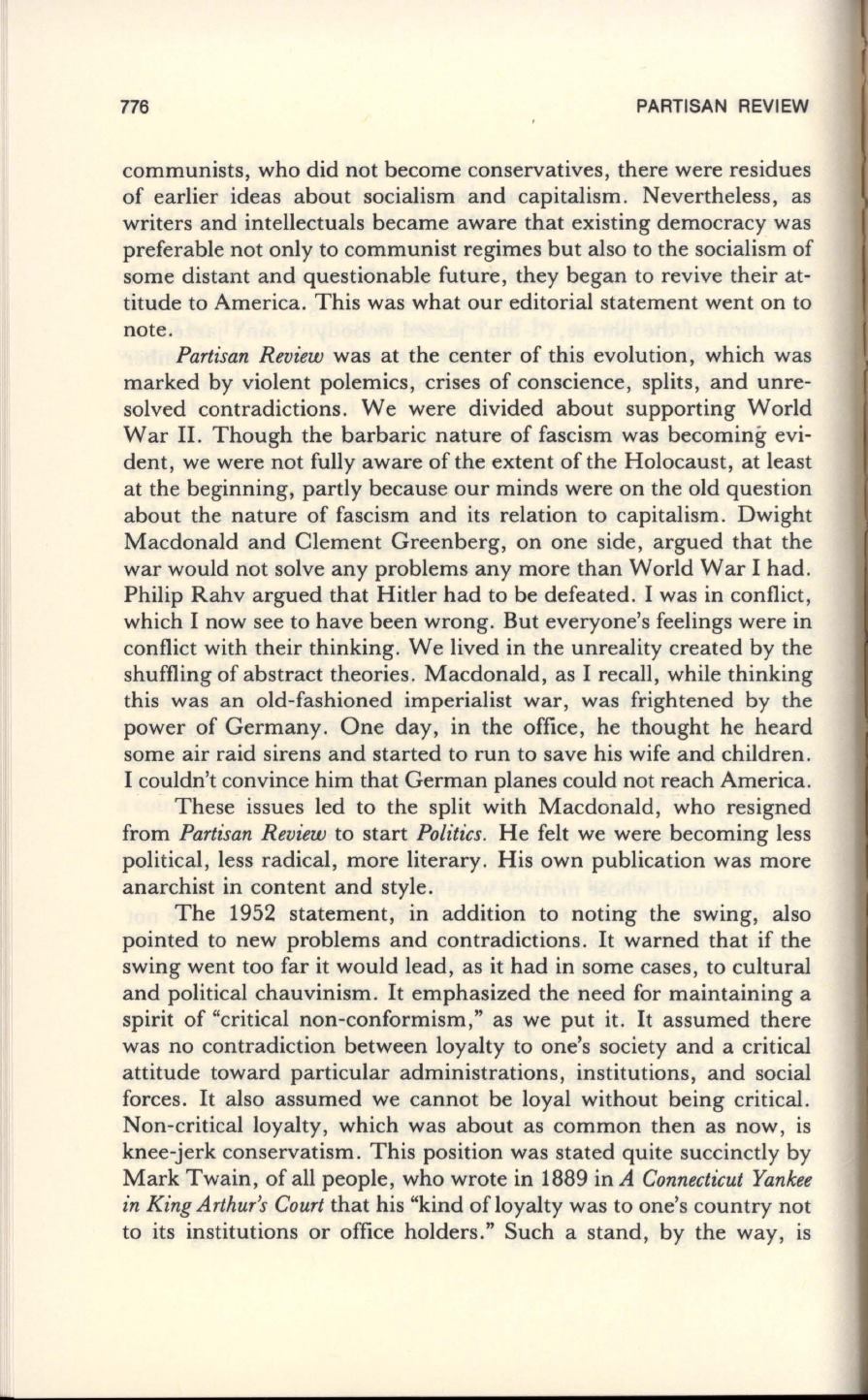
776
PARTISAN REVIEW
communists, who did not become conservatives, there were residues
of earlier ideas about socialism and capitalism. Nevertheless, as
writers and intellectuals became aware that existing democracy was
preferable not only to communist regimes but also to the socialism of
some distant and questionable future, they began to revive their at–
titude to America. This was what our editorial statement went on to
note.
Partisan Review
was at the center of this evolution, which was
marked by violent polemics, crises of conscience, splits, and unre–
solved contradictions. We were divided about supporting World
War II. Though the barbaric nature of fascism was becoming evi–
dent, we were not fully aware of the extent of the Holocaust, at least
at the beginning, partly because our minds were on the old question
about the nature of fascism and its relation to capitalism. Dwight
Macdonald and Clement Greenberg, on one side, argued that the
war would not solve any problems any more than World War I had .
Philip Rahv argued that Hitler had to be defeated. I was in conflict,
which I now see to have been wrong. But everyone's feelings were in
conflict with their thinking. We lived in the unreality created by the
shuffling of abstract theories. Macdonald, as I recall, while thinking
this was an old-fashioned imperialist war, was frightened by the
power of Germany. One day, in the office, he thought he heard
some air raid sirens and started to run to save his wife and children.
I couldn't convince him that German planes could not reach America.
These issues led to the split with Macdonald, who resigned
from
Partisan Review
to start
Politics.
He felt we were becoming less
political, less radical, more literary. His own publication was more
anarchist in content and style.
The 1952 statement, in addition to noting the swing, also
pointed to new problems and contradictions. It warned that if the
swing went too far it would lead, as it had in some cases, to cultural
and political chauvinism . It emphasized the need for maintaining a
spirit of "critical non-conformism," as we put it. It assumed there
was no contradiction between loyalty to one's society and a critical
attitude toward particular administrations, institutions, and social
forces.
It
also assumed we cannot be loyal without being critical.
Non-critical loyalty, which was about as common then as now, is
knee-jerk conservatism. This position was stated quite succinctly by
Mark Twain, of all people, who wrote in 1889 in
A Connecticut Yankee
in King Arthur's Court
that his "kind of loyalty was to one's country not
to its institutions or office holders ." Such a stand, by the way, is


